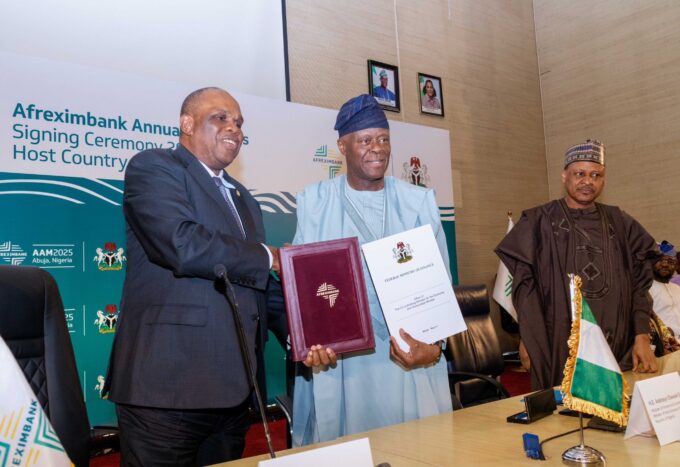- Total expenditure of N10.594 trn
- Capital Expenditure of N 2.465trn
- Recurrent Expenditure N 4.842trn
- Statutory Transfer N560.4bn
- Debt Servicing N2.72trn
- Fiscal Deficit N2.28trn
Key Benchmarks
- Estimated crude oil production of 2.18m barrels per day
- Estimated crude oil price of $57per barrel
- Exchange rate of N305/$1
- Projected GDP growth rate of 2.93%
- Projected Inflation 10.81%
President Muhammadu Buhari has signed the 2020 appropriation bill into law, returning the country to the January to December budget cycle. The signed budget, termed “Budget of Sustaining Growth and Job Creation,” has an aggregate expenditure of N10.594trn; N263.95 bn higher than the N10.333 trn presented by President Buhari to a joint session of the National Assembly in October 2019.
The approved expenditure of N10.594 trn is 18.77% higher than the 2019 approved budget expenditure of N8.92 trn. The budget has a capital expenditure of N2.465trn, which is 15.87% less than the 2019 approved capital expenditure of N2.93trn and a recurrent expenditure of N4.842 trn as against N4.74 trn approved in 2019 budget. The sum of N560.4bn went to statutory transfers and N2.72 trn for debt servicing. The fiscal deficit of N2.28trn was 18.75% higher than the 2019 approved fiscal deficit of N1.92trn.
The projected GDP growth rate for the approved 2020 budget was 2.93%, which is 2.66% lower than the projected GDP growth rate for the 2019 budget. The 2019 budget exchange rate of N305/$1 stayed for the 2020 budget, as the federal government appears to favour a defensive monetary policy intervention in the foreign exchange market throughout the new year. The inflation rate was estimated at 10.81% (which was 1.04% lower than the 11.85% Inflation rate in November 2019), while the estimated crude oil production is 2.18m barrels per day.














